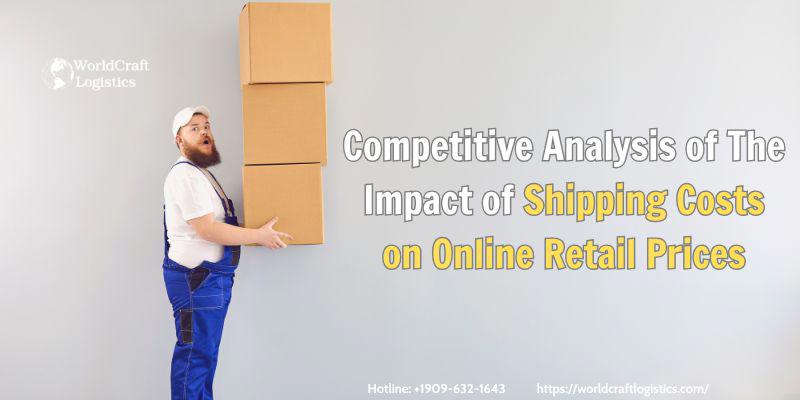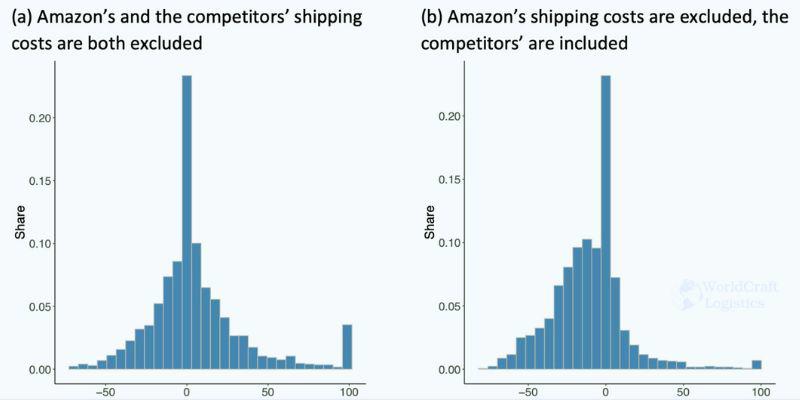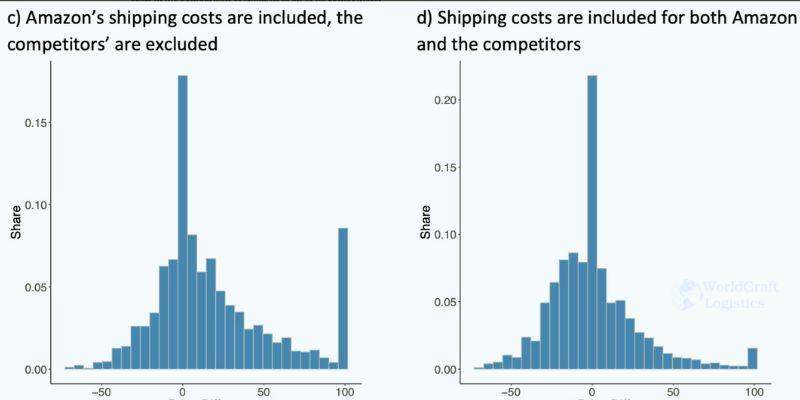
Starting June 1st, 2023 Our warehouse fee will be $0.65/cubic foot per month
In effort to lower the warehouse storage fee during inflation, we have went narrow aisle racking.This construction took us four months but the project is finally completed. With narrow aisle racking, we are able to drop storage by 24%.We as partners will go through this inflation together.
11/11/2024
In today’s online retail landscape, shipping costs are a critical factor shaping consumer decisions and influencing competition among retailers. Traditional antitrust theories have predominantly focused on product prices alone. However, with the rise of e-commerce, shipping fees have become increasingly relevant, especially for smaller retailers who lack economies of scale. This article explores how shipping costs affect online competition, focusing on Amazon's pricing strategies and the broader implications for antitrust policies.

Antitrust laws often aim to protect consumers by regulating retail prices to prevent larger, cost-efficient retailers from outcompeting smaller rivals. For example, many countries enforce price regulations in specific sectors to support small businesses. In e-commerce, however, shipping costs significantly impact the final price paid by consumers, often neutralizing the benefits of lower product prices from smaller retailers.
Amazon’s dominance in online retail illustrates the complex role of shipping costs. The Federal Trade Commission (FTC) has highlighted concerns regarding Amazon’s alleged practice of linking its fulfillment services with its Marketplace platform, potentially penalizing sellers who offer lower prices elsewhere. This can increase the overall cost for consumers and raise competition concerns, as sellers may feel pressured to maintain higher prices within Amazon's ecosystem to avoid penalties.
A recent study by Gado et al. (2023) delved into the price differences between Amazon and its competitors, taking shipping costs into account. The study found that while Amazon might sometimes appear more expensive without shipping, including shipping costs often reveals Amazon as the cheaper option due to its economies of scale. By comparing bestsellers on Amazon and prices on platforms like Germany's Idealo, researchers demonstrated that Amazon's shipping cost advantages play a decisive role in competitive pricing outcomes.


Price Variability with Shipping Costs: Amazon’s prices vary widely compared to competitors, but the inclusion of shipping costs often makes Amazon the cheaper option.
Impact on Small Retailers: Smaller retailers, who lack the shipping economies of scale that Amazon enjoys, may struggle to compete, even when offering lower product prices.
International Insights: The findings from Germany are mirrored in the U.S. market, where Amazon consistently maintains competitive pricing when shipping costs are considered, underscoring the global relevance of these dynamics.
The study suggests several policy considerations to address the competitive effects of shipping costs in online retail:
Reevaluating Antitrust Measures: Antitrust assessments should incorporate shipping costs when analyzing competition, as overlooking them could misrepresent the competitive landscape.
Addressing Price Parity Concerns: Regulatory bodies must assess tying and price parity arrangements in fulfillment services, especially where these affect sellers' pricing flexibility across different platforms.
Expanding Retail Price Regulations: Policies like Germany's book price law could be more effective if extended to include shipping costs, as shipping advantages among larger retailers may negate the intended protection for smaller businesses.
Future Directions: Shipping Cost Competition and Platform Interoperability
Encouraging competition in shipping logistics could help level the playing field for small and large retailers alike. By allowing greater interoperability between online marketplaces and various shipping providers, regulatory frameworks could foster a more competitive and consumer-friendly environment. Ultimately, an inclusive analysis that considers shipping costs in antitrust and competition policies would better address the evolving challenges of the digital economy.
The findings underscore the need for a comprehensive approach to pricing analysis in e-commerce. As shipping costs increasingly impact consumer choice and competition, regulators must adapt their frameworks to reflect these dynamics accurately. Addressing these complexities will be essential to fostering a fair and competitive online retail environment that benefits consumers and supports a diverse range of retailers.
SEO
Digital Marketing/SEO Specialist
Simon Mang is an SEO and Digital Marketing expert at Wordcraft Logistics. With many years of experience in the field of digital marketing, he has shaped and built strategies to effectively promote Wordcraft Logistics' online presence. With a deep understanding of the logistics industry, I have shared more than 500 specialized articles on many different topics.

Hot News
08/05/2024

Hot News
02/23/2023

Hot News
02/23/2023

Hot News
02/06/2023
Hot News
02/07/2023